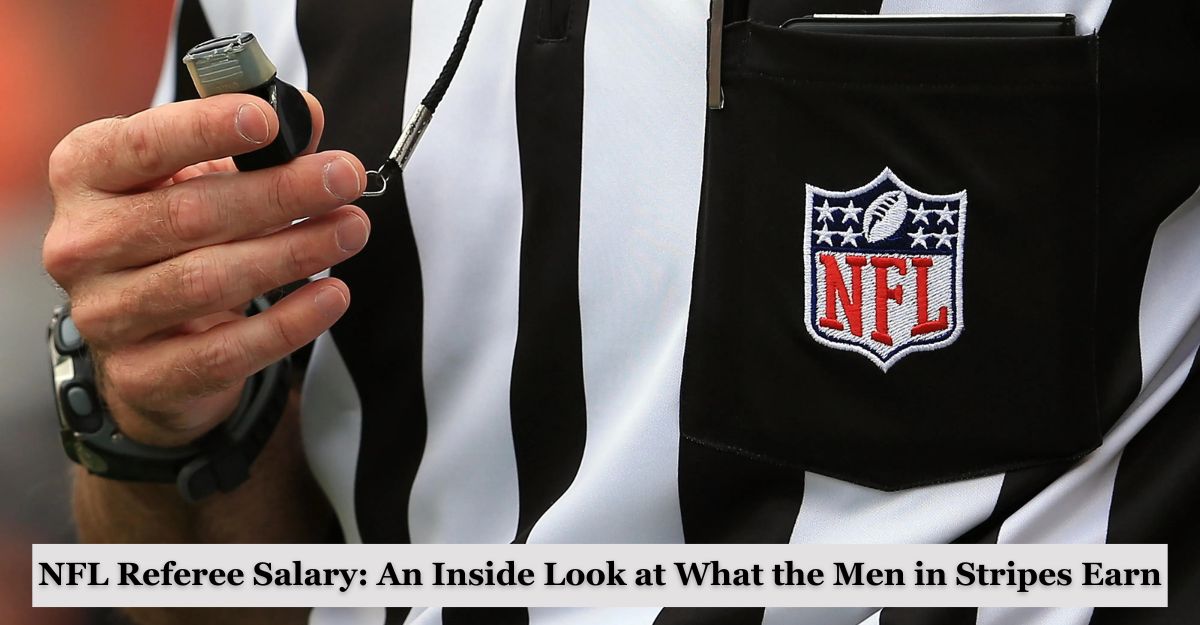The National Football League (NFL) is undoubtedly one of the most prominent and profitable sports leagues in the world. Each week, millions of fans tune in to watch their favorite teams battle it out on the gridiron. While much attention is given to the players, coaches, and team owners, another group plays a pivotal role in every game – the referees. Although their presence can sometimes be controversial, referees ensure that games are play fairly and within the set rules. But have you ever wondered how much these men in stripes earn for their crucial roles? In this article, we’ll take a deep dive into the NFL referee salary.
Understanding the NFL Referee Structure
Before delving into the numbers, it’s essential to comprehend the hierarchy within the NFL officiating system. Not all referees are created equal, at least when it comes to their roles on the field:
- Referee: The main official, identifiable by the white hat.
- Umpire: Typically positioned behind linebackers, focusing on line play.
- Down Judge & Line Judge: Responsible for watching the line of scrimmage.
- Field Judge, Side Judge, and Back Judge: Monitor the secondary and wide receivers.
Each position has its intricacies and responsibilities, but do they all earn the same?
NFL Referee Salary Breakdown
To give a clear picture, let’s break down the salary of NFL referees into a table:
| Position | Starting Salary | Veteran Salary | Playoff Salary |
|---|---|---|---|
| Referee | $35,000 | $200,000 | $20,000 per game |
| Umpire | $30,000 | $180,000 | $15,000 per game |
| Down Judge & Line Judge | $30,000 | $180,000 | $15,000 per game |
| Field, Side & Back Judge | $30,000 | $180,000 | $15,000 per game |
Note: These figures are approximations and can vary based on experience, tenure, and other factors.
Factors Influencing Referee Salaries
- Experience: As with most professions, experience in the NFL officiating world is a big deal. A referee who has been officiating for over a decade and has been part of many high-stake games will naturally command a higher salary than a newcomer.
- Tenure: NFL referees are part of a union, the NFL Referees Association. As with most unions, the longer one’s tenure, the better the pay.
- Game Importance: Regular season games are one thing, but playoff games, especially the Super Bowl, come with added pressure and scrutiny. Thus, referees are compensate more for these games.
- Off-Season Work: Referees don’t just work during the regular NFL season. Many also officiate in pre-season games, training camps, and other league events, providing additional earning opportunities.
- Post-Season Grading: Referees are grade on their performance throughout the season. Those with better grades are chosen for playoff games, translating to increased earnings.
The Intangibles of Being an NFL Referee
While the salaries might seem substantial to some, it’s essential to understand that being an NFL referee is no easy task. The pressure to make split-second decisions that could change the outcome of a game is immense. Additionally, there’s a significant time commitment involved in studying the ever-evolving rulebook, staying in top physical shape, and traveling around the country.
Moreover, with the advent of technology, every decision made by a referee is scrutinize by millions in real-time and dissected in slow motion, adding to the stress of the job.

